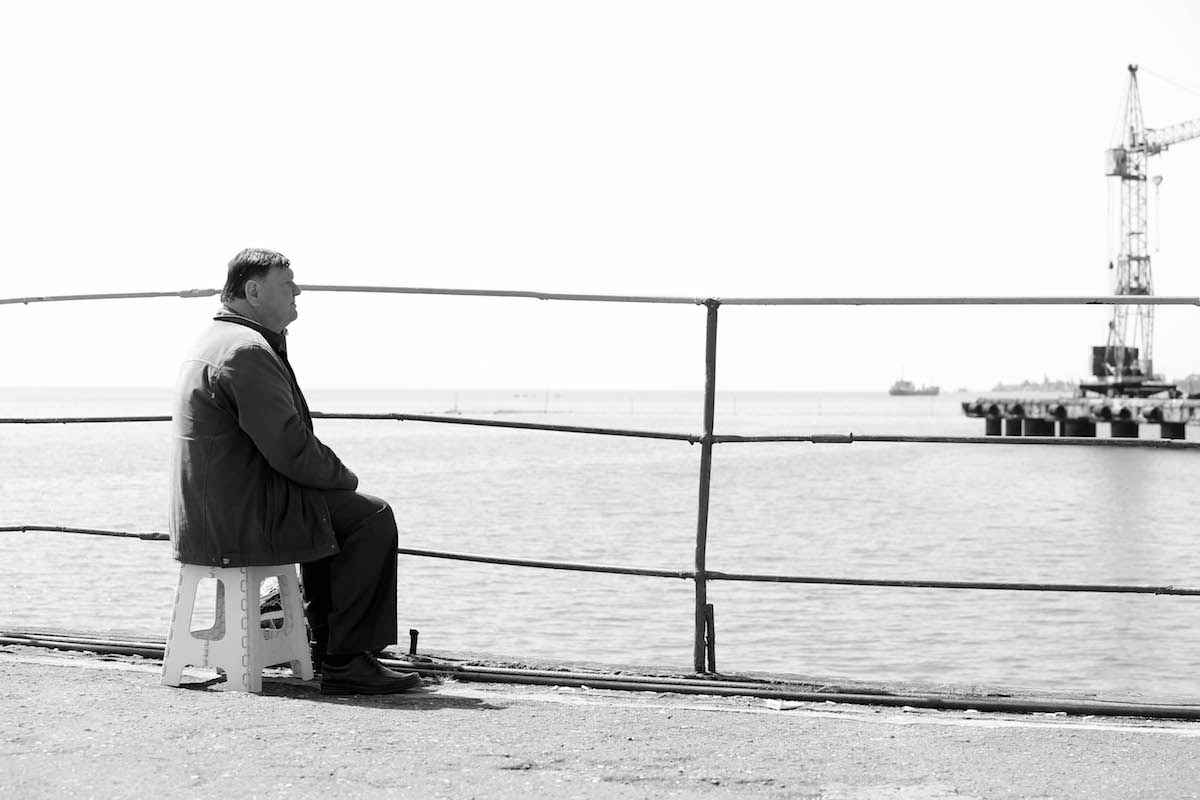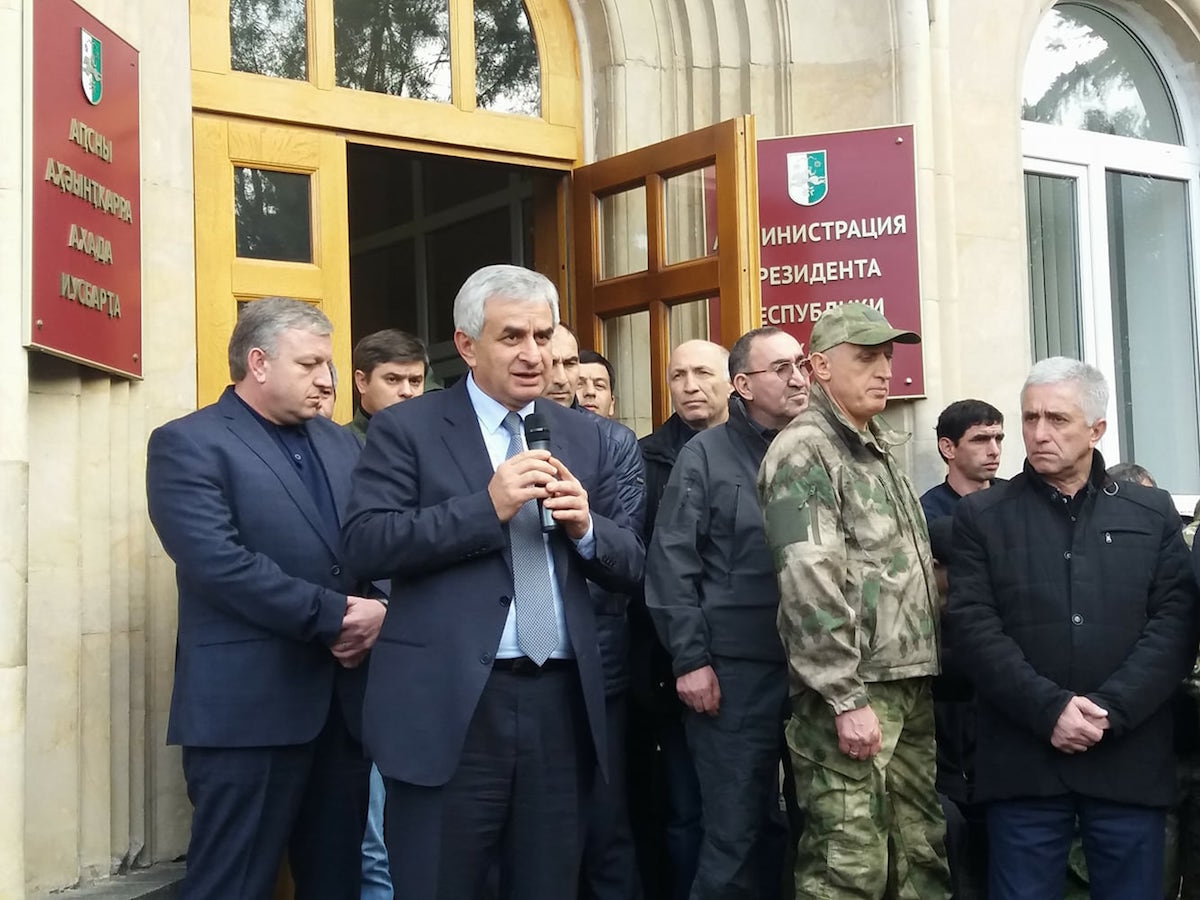The five main events in Abkhazia of 2018

A look at the five main events of 2018 in Abkhzia:
The crisis of the year
The events surrounding Giorgi Lukava was the main crisis of the year.
Lukava was one of the leaders of the former Georgian partisan unit called the Forest Brothers.
For many years after the end of the military phase of the Georgian-Abkhaz conflict, Georgian partisans fought an undeclared war against Abkhazia which killed hundreds of people.
Lukava was arrested in 2011 and spent seven years in an Abkhaz prison.
In January 2018, he was pardoned by the President of Abkhazia, Raul Khajimba, and then almost secretly handed over to the Georgian authorities in exchange for an Abkhaz man accused of drug trafficking and murder.
This exchange eventually resulted in a serious internal political crisis in Abkhazia.
On 3 January, opposition supporters laid siege to a complex of government buildings and demanded that the parliament do an inquiry into the president’s actions.
A parliamentary commission came to the conclusion that the president did not go beyond the limits of the powers given him by the law and had the right to pardon Georgi Lukava.
The opposition, however, did not agree with this verdict and demanded the resignation of the president but failed to make him leave his post.

Stinkbug business
The year 2018 will be remembered by the whole of Abkhazia as a continuation of the mass invasion of the stink bug.
The damage is severe. According to official data, the number of tangerines and hazelnuts produced in the republic — the main agricultural crops of Abkhazia — decreased by 70 per cent in 2017. The data for 2018 has yet to be released.
• Brown marmorated plague: the war on stink bugs in Abkhazia
Due to the epidemic, Russia imposed restrictions in March on the import of all plant products from Abkhazia to Russia including wooden boxes and wood packaging material. As a result, the sanctions included not only fruits and vegetables, but also Abkhaz wines, which constitute the lion’s share of the total exports of Abkhazia.
Abkhazia allocated 20 million rubles [approximately $400,000] in 2018 to fight the stink bug. Significant financial assistance to combat the pest came from Russia and from international organisations, in particular from the The United Nations Development Programme (UNDP).
An extraordinary measure was also proposed: people were offered to collect bugs and give them to a special collection centre at the price of one thousand rubles per kilogram[approximately $18] for, as it was explained, scientific research.
Ten tonnes of the pest were collected.
The measures taken were a success. In April 2018, the quarantine on the Russian-Abkhaz border was lifted. And in December, Abkhaz customs announced that this season set a record for the export of tangerines to Russia.
The resignation of the year
In August, the Abkhaz Vice President Vitali Gabnia resigned after a fight with an Abkhaz businessman.
At a press conference, Gabnia said that the event took place in a restaurant in Sukhum. During a working lunch, a participant of the meeting hit the vice president with a glass on the head, after which a fight ensued.

“I have to leave to defend my honor. It has nothing to do with political realities,” said Gabnia – he was outraged that the assailant had not been punished for what he had done.
“I am resigning as I cannot defend my right and my honour even in such a high position. I have only the opportunity to act in an ‘Abkhaz-style’, for which I need to resign.”
This is the fourth case of a vice president resigning in Abkhaz political history. Valery Arshba resigned in 2004, Raul Khadjimba in 2009, Mikhail Logua in 2013, and now Vitaly Gabnia.
The Abkhaz ‘rouble’
In late September, Abkhazia announced the release of a Vladislav Ardzinba commemorative banknote with a face value of 500 apsars, dedicated to the 25th anniversary of the victory in the Patriotic War of the People of Abkhazia [ed. Georgian-Abkhaz conflict in the early 1990s].
The banknote, however, is not used as a means of payment, since the main currency in Abkhazia is the Russian ruble. However, it has still appeared in circulation.
“You can give this bill for a birthday, for a wedding, or as a gift to present to someone. We need to understand that this is not a piece of paper, but a value, and it can be exchanged for rubles,” said the chairman of the National Bank of Abkhazia, Beslan Baratelia.
In many stores, the bill is still accepted as a means of payment. It is equivalent to 5,000 rubles [approximately $85], and it can be exchanged for rubles in any bank in Abkhazia.
But since few of the bills were printed – only 10 thousand units – they are in demand among coin and bill collectors. Therefore, on online auctions, a 500 apsar bill can be sold for eight thousand rubles [approximately $115] and higher.
The loss of the year
On 9 September 2018, Abkhaz Prime Minister Gennady Gagulia died in a car accident. The driver and accompanying guard received varying degrees of injury.
Gennady Gagulia was returning that day as a member of an Abkhaz delegation to Damascus, where an agreement on friendship and cooperation had been signed between Syria and Abkhazia.
Gagulia was considered a heavyweight of Abkhaz politics. He was head of state on three occasions and was considered one of the most influential politicians of the republic. Oddly, he never had presidential ambitions.


















